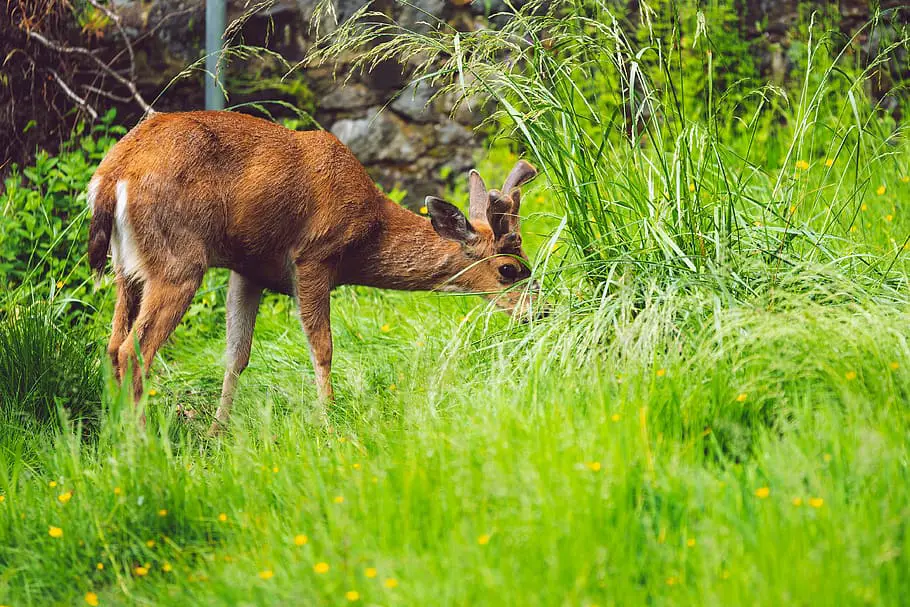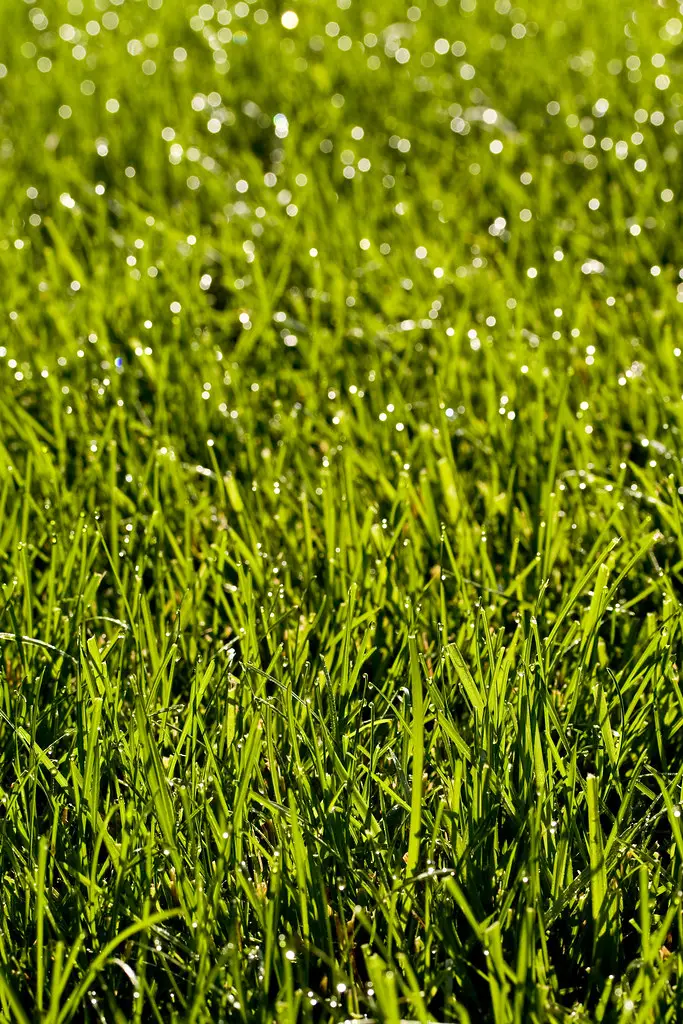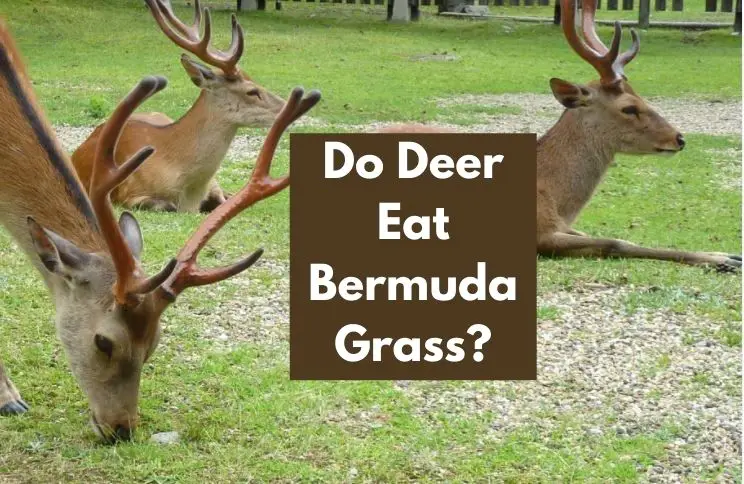There are a lot of myths out there about what deer do and do not eat. One common question is: do deer eat bermuda grass?
Deer do not like to eat bermuda grass. Bermuda grass provides very little nutritional value to deer and is hard for them to digest.
There’s a bit more to learn about deer eating bermuda grass which we’ll cover in today’s guide. Read on for more info.
Why Don’t Deer Eat Bermuda Grass?

As we covered, deer will not eat bermuda grass, even when they’ve got the chance.
But why do they avoid it?
After all, deer are herbivores, so they love to eat leafy greens and flowers.
Bermuda grass is a leafy green, so deer should like to eat it, right?
Deer don’t like bermuda grass because it is tough on their digestive system and has little to no nutrition for them.
White-tailed deer can actually starve by eating only Bermuda grass.
Do Deer Like Bermuda Grass?
Deer do not like bermuda grass, as it is hard on their digestive systems and contains very little benefits to them for eating it.
Do not bother planting Bermuda grass if you’re planning a food lot or trying to attract deer to your area, as it will do nothing for you (or them).
Deer are most likely to eat bermuda grass when it is young because it’s much easier for their stomachs to break down and because there is more nutritional value to them at this stage.
Is Bermuda Grass Good For Deer?

Bermuda grass is not good for deer because it’s hard for their digestive system to process in order to extract the nutrients that deer need.
Bermuda grass contains minerals like calcium, phosphorus, potassium, sodium, magnesium, manganese, zinc, and copper.
These vitamins and minerals provide deer with many benefits.
Deer need calcium for bone, teeth, and antler growth and health as well as other bodily functions like milk production and metabolism.
Potassium is great for deer because it helps maintain good pH balance and aid in proper digestion.
Manganese assists deer in growth, respiration, and reproduction.
Magnesium is great for antler growth, increasing body weight, and has immune system benefits for deer.
A 2007 study showed that zinc can assist in growing larger antler sizes in white-tailed deer.
While all of these nutrients are very valuable to deer, their digestive tracts can’t process bermuda grass well enough to gain the benefits.
The reason for this is that as the amount of digestible dry matter increases, the more nutrition is passed on to the animal.
Well, Bermuda grass for deer is not very digestible. A deer can only digest about 45-55% of the material due to thicker cell walls within each blade of grass.
To put this in perspective, plant cell contents are about 98% digestible, and this is where the proteins, carbs, and other nutrients are located.
Cell walls contain other low-value materials for deer but are only about 50% digestible, leaving very little actual food for a deer to benefit from by eating Bermuda grass.
Even if Bermuda grass is turned into hay, it doesn’t help a deer’s ability to digest it.
Alternatives To Bermuda Grass For Deer
While many folks think that “everything green” in the forest is acceptable to deer, there are actually not many plants that deer will eat in a given area.
Bermuda grass is considered a “forage”, which includes seasonal perennial grasses. Forages have the lowest digestibility and are much better suited for grazing animals like cows.
Deer prefer to eat weeds or “browse” plants, like the tips of woody shrubs and trees, and occasionally broad-leaved plants.
Deer also love to eat forb plants, which are flowering, nongrassy plants that have seed and stems that die at the end of each growing season, like wildflowers.
Can Deer Eat Bermuda Grass? Wrapping Things Up
So, do deer eat bermuda grass?
No, deer will usually not eat Bermuda grass unless there’s no other food sources around.
They can actually benefit from the vitamins and minerals found in it, but their systems have a hard time breaking it down.
Deer are the most likely to eat Bermuda grass when it is young and just coming in.
Just be sure to take care with your scent, the size of the portion, and how many deer you’re feeding when planting bermuda grass for them.
Have any observations to add to the discussion? Be sure to let us know in the comments below.
Check our our other helpful wildlife guides while you’re here:

